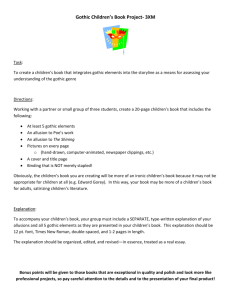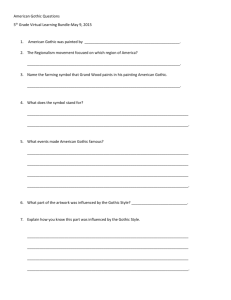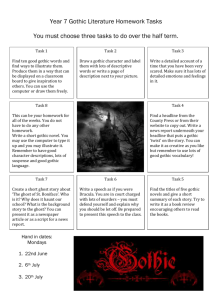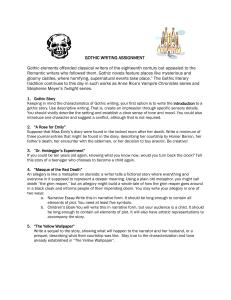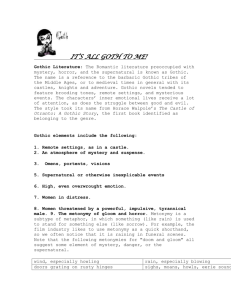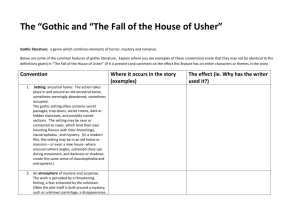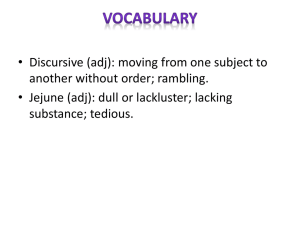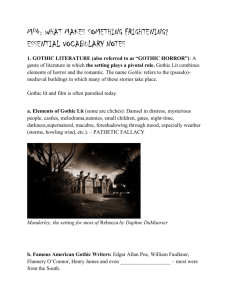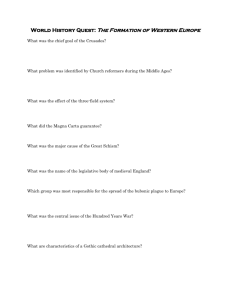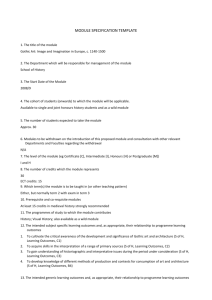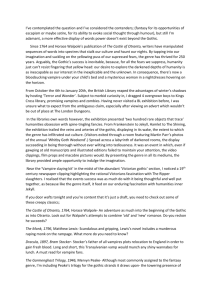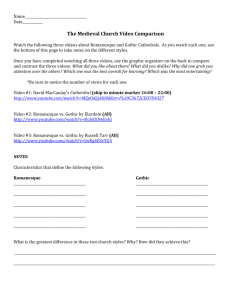Taste-difference-extras-But-even-in
advertisement
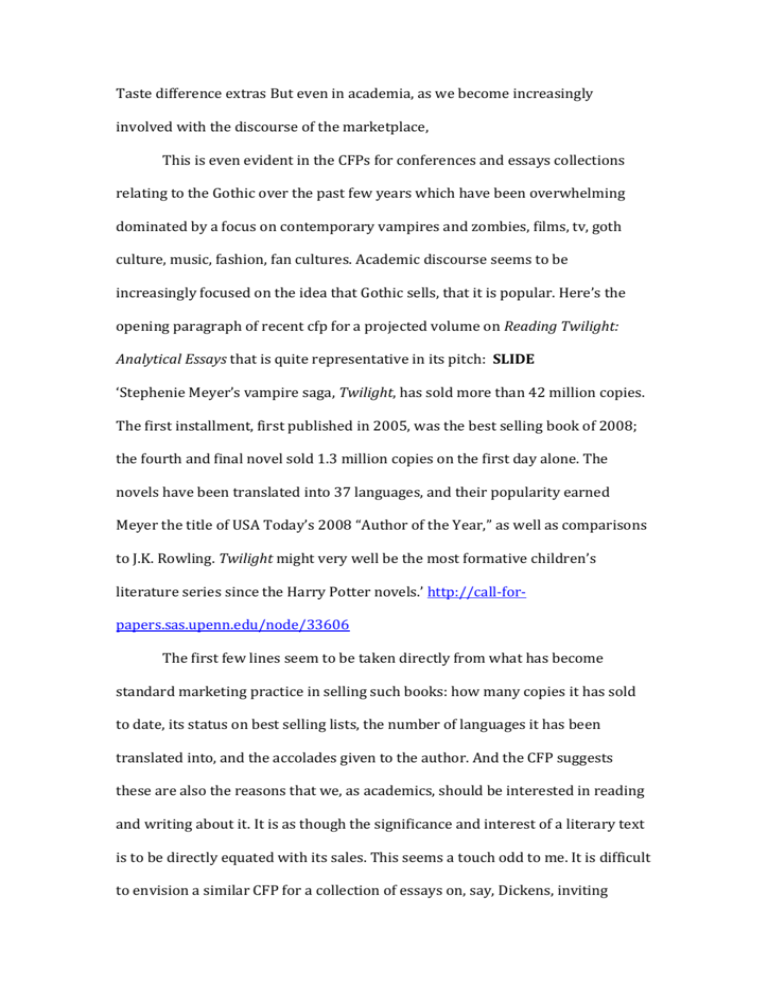
Taste difference extras But even in academia, as we become increasingly involved with the discourse of the marketplace, This is even evident in the CFPs for conferences and essays collections relating to the Gothic over the past few years which have been overwhelming dominated by a focus on contemporary vampires and zombies, films, tv, goth culture, music, fashion, fan cultures. Academic discourse seems to be increasingly focused on the idea that Gothic sells, that it is popular. Here’s the opening paragraph of recent cfp for a projected volume on Reading Twilight: Analytical Essays that is quite representative in its pitch: SLIDE ‘Stephenie Meyer’s vampire saga, Twilight, has sold more than 42 million copies. The first installment, first published in 2005, was the best selling book of 2008; the fourth and final novel sold 1.3 million copies on the first day alone. The novels have been translated into 37 languages, and their popularity earned Meyer the title of USA Today’s 2008 “Author of the Year,” as well as comparisons to J.K. Rowling. Twilight might very well be the most formative children’s literature series since the Harry Potter novels.’ http://call-forpapers.sas.upenn.edu/node/33606 The first few lines seem to be taken directly from what has become standard marketing practice in selling such books: how many copies it has sold to date, its status on best selling lists, the number of languages it has been translated into, and the accolades given to the author. And the CFP suggests these are also the reasons that we, as academics, should be interested in reading and writing about it. It is as though the significance and interest of a literary text is to be directly equated with its sales. This seems a touch odd to me. It is difficult to envision a similar CFP for a collection of essays on, say, Dickens, inviting papers on his works because they’ve been so popular, translated into so many languages. In the world of Gothic Studies, we seem to be increasingly buying into, and speaking in the language of, marketing hype. Even the next IGA conference is telling themed ‘Gothic Ltd’. I’m not suggesting that academia has ever been exempt from these concerns. As James Twitchell says in discussing ‘Higher Ed Inc’, ‘the marketplace of ideas is a marketplace. Merchants have always been in the temple’ (4). (Twitchell, of course, is a professor of both English and Advertising at the University of Florida. Our future looms – I suppose filling in the Impact section of grant application forms would suddenly become far more fun.) But while the idea that Gothic sells, that it is a product and a very popular one, may be nothing new, what does seem evident is that Gothic is now also a branding strategy, and
